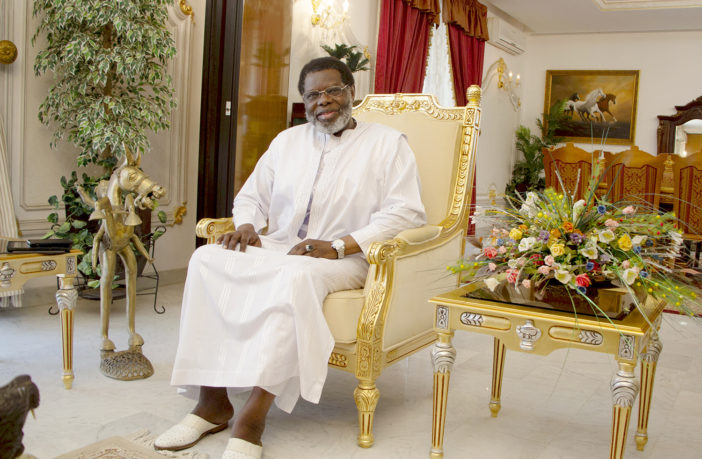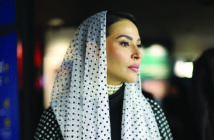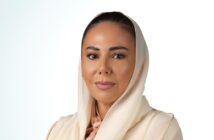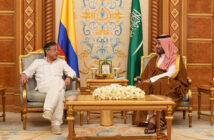The history of bilateral collaboration between Saudi Arabia and Cameroun dates back to 1961. What are the most notable achievements of this peaceful cooperation? What are your expectations for growth during the next six decades?
Since establishing bilateral ties between Saudi Arabia and Cameroon, advancement continues in many areas. At the political level, relations between the two countries have been marked by continuous cooperation, constant communications between the ambassadors, and frequent visits by government and business delegations to the two capitals.
One of the most recent state visits took place in October 2020 in Yaoundé. HRH Prince bin Farhan bin Abdullah Al Saud, Minister of Foreign Affairs of Saudi Arabia, led the delegation to have rendezvous to the Presidency of the republic, to meet the Minister of External Relations to inaugurate the Saudi Diplomatic Mission, one of the largest missions ever built in Africa. I believe that there have been many steps taken by Saudi Arabia to continue to expand the strong relationship with Cameroon.
When discussing multilateral relations, I would like to emphasize that the two countries frequently consult, cooperate, and support each other during international organizational meetings. As an ambassador, I truly appreciate the excellent state of relations between the two countries.
Since the opening of the Military Mission in our Embassy in Riyadh in 2012, the military exchanges between the two countries have been productive. H.E. Mohammed Al-Ayeesh, Saudi Deputy Defense Minister visited Cameroon in November 2018. The Chief of Staff of the Cameroonian Armed Forces visited Saudi Arabia in November 2019. The two countries jointly decided to cooperate in the fight against terrorism. Saudi Arabia also now accepts Cameroonian military personnel into its military academies for training or to complete an internship program.
Economic cooperation is considered to be one of the central segments where bilateral relations between countries can flourish. Therefore, I want to emphasize the continual and loyal support that Saudi Arabia has provided to Cameroon. This was evident with the investment by the Saudi Fund for Development (SFD) to build roads, hydroelectric dams, schools, and hospitals in Cameroon. Also, investments now include donations to educational institutions. TThe University of Ngaoundéré and the Maaron Business School in Douala now receive financial support from the Saudi Fund for Development. Another addition has been the construction of much-needed roads supported by the investments of the Saudi Fund for Development, including the interregional road in the Kribi harbor, which stretches from the Congo to Cameroon. I want to stress the importance of the General Agreement on Cooperation between the two countries, which is in the process of being finalized. It is expected to be signed very soon.
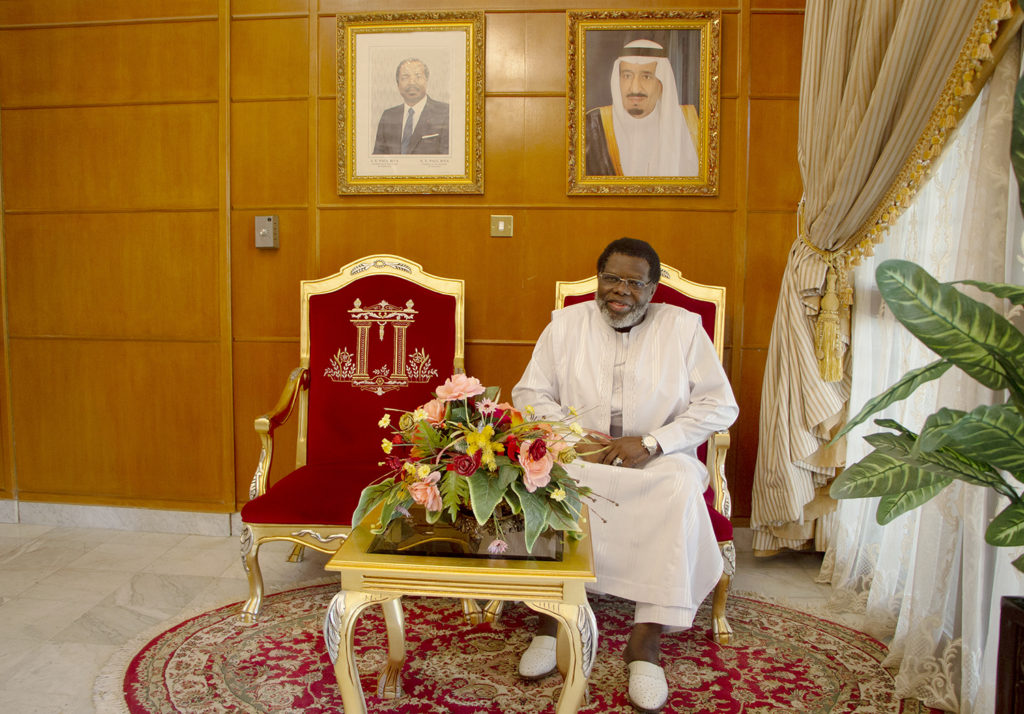
Both Saudi Arabia and Cameroon have launched National programs focused on the peaceful development and progress of their two countries. What are the contributions of Cameroon to Saudi Vision 2030 and the 2035 Emergence Plan for Cameroon?
My hope is for the further development of relations between Saudi Arabia and Cameroon within the framework of these national initiatives. One of those achievements will be the operationalization of the Air transportation agreement in the coming months, which was signed earlier in 2017, in Riyadh. This agreement will help revitalize key sectors of cooperation, including investment trade, agriculture, education, health, and counter-terrorism. The latter (i.e., terrorism) poses a real threat to the entire country and its investments. After the signing of this agreement, work on the promotion and protection of investments will begin. This will be followed by a tax convention.
During these past years, many agreements have been signed in trade and economic cooperation within the Islamic Cooperation Organization. I believe that these agreements and their implementation will facilitate bilateral investment. Furthermore, this will definitely contribute to the achievements of Saudi Vision 2030 and the 2035 Emergence Plan for Cameroon.
In 2017, the bilateral Air Transportation agreement between the two countries was signed by the Cameroonian and Saudi Ministers of Transport; Edgard Alain Mebe Ngo’o and Sulaiman Bin Abdullah Al Hamdan. How has this agreement contributed to further economic cooperation between Cameroon and Saudi Arabia?
The Air Transportation agreement was signed after lengthy negotiations, and for Cameroon, this document is essential to the reinforcement of the cooperation between the two countries and to the development of the country and its economy. The contract allows for valuable trade exchanges with the supply of goods. This, in turn, will increase Cameroon’s exports. That includes the trade of fresh fruit, plantain, tubers (cassava, sweet potato) tomato and onion, banana, coffee, tea, different types of marketable species of forestry to Saudi Arabia and other countries in the Gulf, Asia, and the valuable areas of the Southeast. The increase in flights will increase the number of pilgrims traveling from Cameroon and help the country reach the allowed quota of 10,000 pilgrims.
In addition to being the ambassador to the KSA, you are responsible to all of the Gulf countries. Please, elaborate on the current status of multilateral ties between Cameroon and the GCC.
This would be an appropriate time to discuss Cameroon’s relationship with the GCC member countries and not with the entire Council. Cooperation with the whole Council is not as apparent as cooperation with each individual state. Therefore, the government of Cameroon is working to revitalize and strengthen its ties with each member. For example, the Consulate General of Cameroon, located in Dubai, has secured an agreement of collaboration. In addition, a memorandum of understanding on mutual exemption on visas requirements is in the process of being ratified by the National Assembly of Cameroon. Furthermore, the Draft Agreement on the Avoidance of Double Taxation on income with the United Arab Emirates is under final review.
There are many agreements that the government of Cameroon and some Gulf States have already negotiated. Some remain in the negotiation process. This includes but is not limited to agreement on promotion and protection of investments. There is also a memorandum between the Chambers of Commerce of Cameroon and the Gulf states.
I must emphasize that many Cameroonians live in the United Arab Emirates, Qatar, Kuwait, Oman, and Bahrain. The Embassy of Cameroon in Riyadh and the Consulate General in Dubai oversee the processes in all of these countries. We are currently working with our partners in Kuwait to see how to establish ways to assist Cameroonians there. I would like to mention, with gratitude, that every Gulf State provides Cameroonians with the support they need, particularly during the COVID-19 pandemic by the Cameroonian repatriation program to Yaoundé.
Can you discuss the state of interfaith dialogue in Cameroon? How do people of different faiths live in harmony?
Although Cameroon has a mosaic of religions, cultures, languages, and ethnic groups, the population lives in harmony. It is evident that the concept of living together peacefully has never been fundamentally questioned in this miniature of the Africa continent.
Sadly, many people live in a divided and fragmented world where there is an urgent need to resist violence and focus on our shared human values, regardless of our ethnicity or religion. Therefore, it is essential to peacefully live together in a world where each person can find their place of tranquility and safety. This includes the need for positive attitudes of respect and acceptance. In part, the rule of law must be followed, and everyone must accept gender equality and eliminate stereotypes. In short, a pragmatic approach is needed, which recognizes and respects human dignity, individual rights and the culture of every group, without violations of the rule of laws.
The Embassy of Cameroon is located within the Diplomatic Quarter along with many other foreign missions in the Kingdom. How would you assess this approach to the development of diplomacy?
I would not be exaggerating if I said that people who initially thought of creating the Diplomatic Quarter had a genius idea. Cameroon endorsed such an initiative and was among the first countries to build an embassy in DQ. The construction of the Embassy began in 1979 and was completed in 1981.
DQ is a unique complex, in which all infrastructures have been created or are in the process of creation to assure a comfortable and secure life for each citizen. It is a city with all amenities, including schools, hospitals, shopping malls, gyms, restaurants, parks, a revered mosque. Most importantly, I would like to stress the safety and security of DQ and the polite staff, who are always ready to help and support. I must admit that at times, I can easily spend an entire month in the DQ without any desire to leave.
Cameroon Embassy in the Kingdom of Saudi Arabia
Diplomatic Quarter
PO Box 94 336 Riyadh 11693, Saudi Arabia
Contact No: 011-488-0022/011-488-0203
Email: ambacamriyad@yahoo.fr
Website: http://www.ambacamsaudi.org

